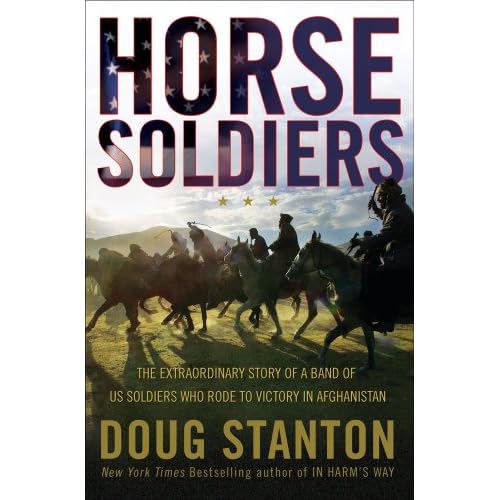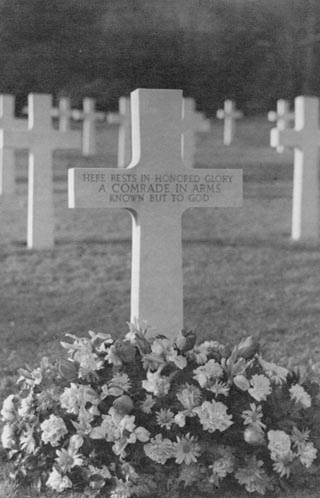Richard Clarke,
Your Government Failed You: Breaking the Cycle of National Security DisastersYour government failed you.
So said Richard Clarke to the American people during the 9/11 Commission hearings a few years back. Clarke's resume of over 30 years in the foreign policy arena speaks for itself and adds weight to his point of view. At times, his tales of frustration infuriate because they show just how much government did fail leading up to 9/11.
But, as reaction to his first book
Against All Enemies: Inside America's War on Terror made evident, he can also be frustrating to those
who are familiar with events he describes. And this familiarity with
acute events can lead, ultimately, to a wholesale--albeit unwarranted--
distrust of Clarke.
If I know that he's not being completely forthcoming on Event "A" for which I know a lot about, then how can I be sure he's not doing the same for Events "B, C and D" for which I'm not as familiar? And to the degree that his diagnoses and prescriptions rely upon his experience and expertise, as supported by his explanation of various events, then how seriously am I to take his ideas? In other words, are Clarke's ideas well-informed and worthwhile or just part of an exercise in legacy-protection? The answer, unsurprisingly, is all of the above.
When reading and analyzing a first-hand account of events, a reader should always be on the look out for bias; on the part of both the source
and the reader. Ultimately, each of us have to rely on our sense of what seems like good, sound reasoning and argumentation. So, despite these reservations, there are still some things that even
those most predisposed to distrust him can learn from Clarke.
Throughout
Your Government Failed You, Clarke clearly names names and assesses blame. His reasoning seems sound and his grasp of the nuances of foreign affairs and diplomacy is worth noting as is his recognition of the role that contingency can play in outcomes. And while he doesn't let himself off the hook for some of the errors made, his phraseology can be passive/aggressive. For instance, the phrasing of his "apology" that gave title to this book leaves the impression that he's apologizing more for others than himself. In his opening to Chapter 5, Clarke explains that on the morning of 9/11
I knew that I had failed. In the days and years leading up to that awful moment I had failed to persuade two administrations to do enough to prevent the attacks that were now happening around me.
You see, the decision makers in government didn't listen to Clarke, which is why they failed. And he only failed because they didn't listen. That's a fairly obtuse way of taking blame. The question is then: should
we listen to him? Based on my reading and analysis of the events that Clarke describes, I certainly am wary of accepting Clarke's version of events
prima facia.
For instance, he notes "the refusal of the Bush administration to ratify the [Kyoto] protocol...(p.277)" and makes no mention of the Clinton administrations similar "refusal." Elsewhere, he explains how he thinks partisanship is bad for national security, something for which many would agree. But the examples of partisanship he provides are markedly one-sided.
I think the record is fairly indisputable that national security issues have been used for partisan electoral advantage in recent years: terrorism threats have been overhyped near elections, predictions have been made about terrorist attacks occurring if the other party wins, people's patriotism has been questioned. (p.340-41)
Common charges levied against the Republicans, all. No mention of the political rhetoric flying from the Democratic side--immediate withdrawal, illegal war, the Bush fascist state, etc.--which helped them sweep to Congressional power in 2006. I suppose if you believe one set of arguments, then they aren't partisan?
Much of the first part of the book is devoted to Clarke's restatement of many of the same charges he made in
Against All Enemies. He still thinks Iraq is a distraction away from Afghanistan, which is an arguable point, especially with Osama bin Laden still loose. He also puts much blame for Iraq at the feet of the generals charged with preparing our forces for the invasion:
1) "Neither the Chairman of the Joint Chiefs of Staff [General Richard Myers] nor the regional commander at CENTCOM [General Tommy Franks] dissented from the initial war plan..."
2) The generals didn't implement proper counter-insurgency activities though they were aware of analysis from the CIA and State department that predicted insurgent activity in post-invasion Iraq.
3) Related to #2, once it became clear that the President intended to invade Iraq, the Generals did not advise the President and Congress that they did not have enough troops to deal with an insurgency.
4) "Inadequate training and...equipment" for American troops in Iraq.
5) Generals tacitly condoned torture, such as at Abu Grahib.
6) Generals didn't ensure that wounded troops were treated adequately (Walter Reed).
All of these points are worth debating. But elsewhere, Clarke essentially accuses General David Petraeus, architect of the proving-successful surge implemented in 2007, of moving the goalposts himself when his own counter-insurgency efforts were initially exhibiting slow returns. "It began to seem as if the reason for the surge, in Petraeus's mind, was to prove that his new counterinsurgency strategy could work."
The recent success in Iraq is making Clarke a victim of the time line. For he claims that Petraeus
[b]y defending a policy that in the larger sense was injurious to the United States and the Army, by arguing for staying on when he admitted that his own condition for the U.S. presence (real progress toward Iraqi unity) was not being met...raised new questions about what makes a general political.
When Clarke wrote these words, the effectiveness of the surge was still in doubt. But no matter the expertise that lay on the side of the predictor,
reality has a way of ruining predictions.
Clarke has much else to say about a plethora of items related to national security and, not as impressively, global warming. As to the last, he essentially toes the Al Gore line. Nothing earth shattering (or warming?).
Further, it becomes clear that Clarke is a supporter of the
Powell doctrine, though redefined for the times, which is entirely defensible. On the other hand, he also channels
Thomas Franks (the academic, not the general) by basically asking "what's the matter with the military," because he can't understand why they have become so overwhelmingly Republican (though he notes that Democrats are gaining support).
All in all, this is a "thick" book. There is a lot to digest and a lot to think about. Clarke's writing isn't florid or light. Instead, he hits you time and again with anecdotes and antidotes that spring from the mind of the man who apologized to the American people on behalf of the U.S. Government. In the end, his is a voice that warrants a listen. Perhaps the best way to get a balanced view of some of the events is to read Clarke's book in combination with Douglas Feith's
War and Decision. To quote Ronald Reagan, "
Trust, but verify."

